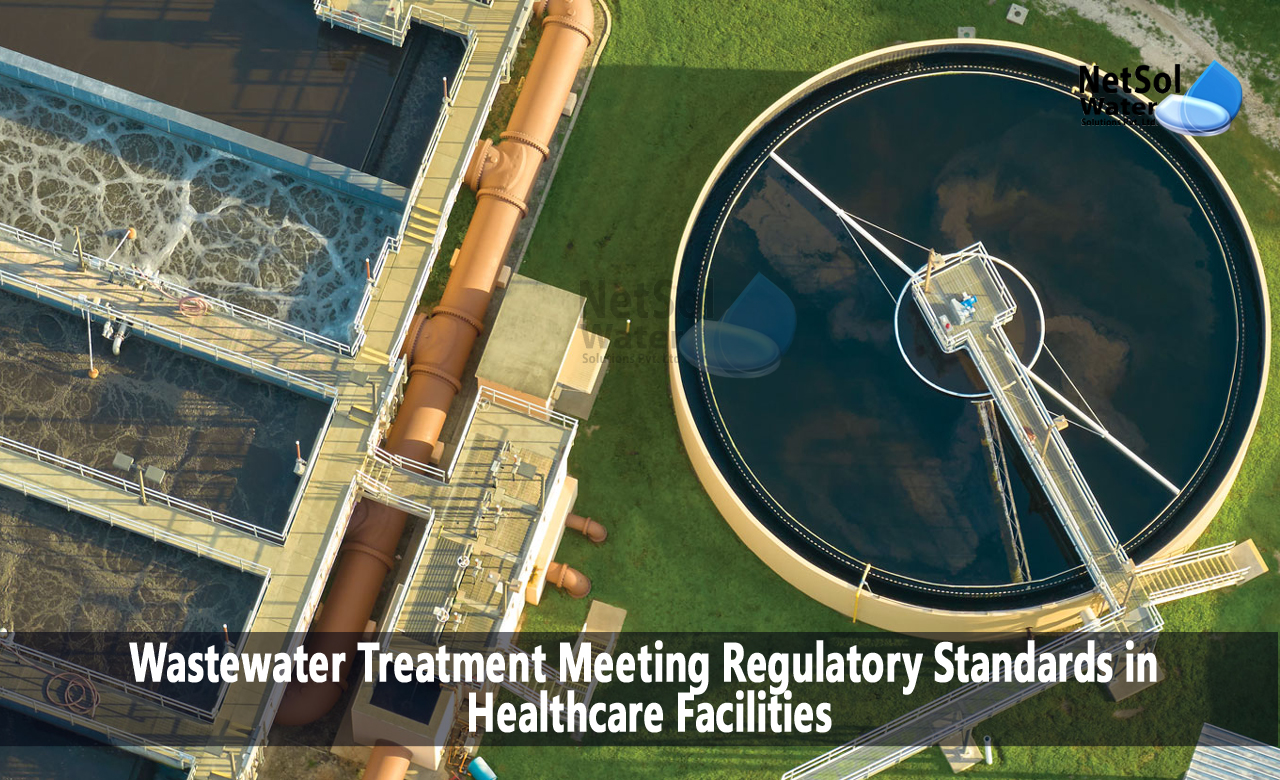Wastewater Treatment Meeting Regulatory Standards in Healthcare
Public health is safeguarded by healthcare centers, hospitals, clinics, and laboratories. These wastewater systems, however, produce large amounts of contaminated wastewater containing pathogens, pharmaceuticals, and hazardous substances. Wastewater treatment in healthcare facilities should be efficient enough for environmental conservation and to conform to stringent legislative requirements. This post looks at the challenges that hospitals face during wastewater treatment and come up with strategies on how to surpass the standard set by the law.
Wastewater in Healthcare Facilities – Challenges.
Wastewater generated in healthcare facilities is unique and poses specific challenges:
Pathogens and Infectious Waste: The wastewater produced by healthcare facilities consists of multiple types of pathogens and infectious materials. This is critical in minimising the spread of diseases and infections.
Pharmaceuticals and Hazardous Substances: Medical processes and research often result in the wastewater containing pharmaceuticals, chemicals, and hazardous waste. It is imperative to treat these substances lest they cause environmental and human health problems.
Heavy Workload: Hospitals and health centres operate continuously 24 hours a day, resulting of large flow of sewage water each day. This implies that strong and dependable wastewater treatment facilities are necessary for a considerable amount of workload.
Meeting Regulatory Standards
Compliance with Local Regulations: Wastewater management in health care facilities should be informed about the local, state and federal rules and regulations. Legally, adhering to the regulatory requirements assists the facility to remain environmentally responsible.
Advanced Treatment Technologies: Advanced wastewater treatment technologies like ozone disinfection, UV irradiation, and membrane bioreactors have been effective in eliminating pathogens and chemicals from wastewater. These innovations ensure that an effluent is in compliance with set standards of law.
Separation of Hazardous Waste: To prevent hazardous waste and pharmaceuticals from entering the regular waste-water stream, it is important to segregate them at the source properly. Waste management protocols within healthcare facilities need to be put in place to avert contamination and safe disposal.
Effluent Monitoring: Effluent quality should be continuously monitored to ensure compliance. Automated monitoring systems ensure that the information is accurate and up-to-date, which provides an opportunity for immediate corrective measures.
Education and Training: Training in proper waste management practices ought to be offered to staff in healthcare facilities. This minimizes the likelihood of unintended discharges or improper waste management.
Emergency Preparedness: Building a wastewater incident response plan. Healthcare centres need to be prepared to respond to cases of spills, mechanical failure, and other unexpected circumstances that may cause harm to the environment.
Engagement with Environmental Agencies: Communication and cooperation with local environmental agencies could be helpful. These agencies can help healthcare facilities to comply with wastewater treatment standards that the facilities must meet.
Green Initiatives: Many healthcare facilities are turning ‘green’ with an increasing number of sustainability initiatives, including harvesting rainwater, reusing grey water and use of energy-efficient treatment technologies. Apart from minimising the environmental effects, they also lead to cost savings.
Conclusion
The wastewater treatment in health care facilities forms part of their obligation to the community and the environment in its entirety. Advanced treatment technologies will be required for the treatment of these wastes in order to conform to environmental and regulatory standards as far as the handling of safe and eco-friendly wastewater is concerned. This way, the hospitals will be able to keep people healthy while also preserving the environment and proving that they follow ethical and responsible medical practices.
Netsol Water is Greater Noida-based leading water & wastewater treatment plant manufacturer. We are industry's most demanding company based on client review and work quality. We are known as best commercial RO plant manufacturers, industrial RO plant manufacturer, sewage treatment plant manufacturer, Water Softener Plant Manufacturers and effluent treatment plant manufacturers. Apart from this 24x7 customer support is our USP. Call on +91-9650608473, or write us at enquiry@netsolwater.com for any support, inquiry or product-purchase related query.



